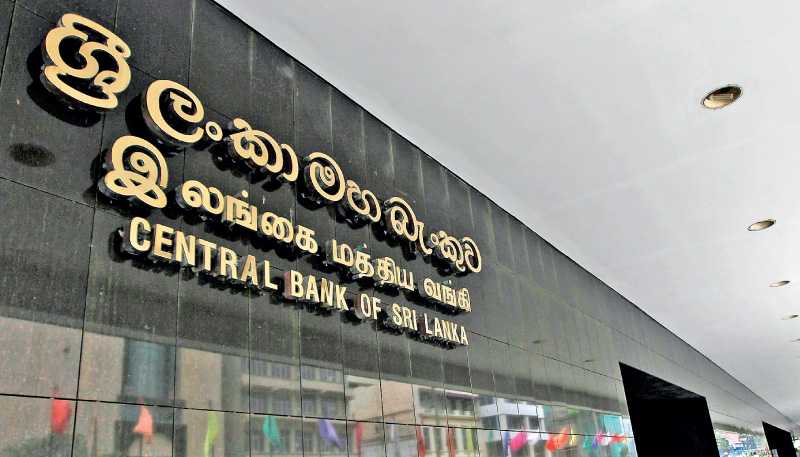Thursday Mar 05, 2026
Thursday Mar 05, 2026
Thursday, 8 October 2020 00:07 - - {{hitsCtrl.values.hits}}

 Humanity is now going through unprecedented turbulent times in its journey. The coronavirus disease, or COVID-19, has already affected more nations than any of the previous world wars.
Humanity is now going through unprecedented turbulent times in its journey. The coronavirus disease, or COVID-19, has already affected more nations than any of the previous world wars.
Sri Lanka has largely been able to curb the spread of COVID-19 due to early lockdown, efficient contact tracing and quarantine measures, quick call to action and a robust public health infrastructure. Yet, the pandemic is certain to leave its mark on the island-nation’s economy.
The economy is expected to shrink this year compared to last year. Airlines, the hospitality industry and the retail sector experienced the immediate impact of the COVID crisis and continue to face a huge challenge to recover. Banking is no exception.
Despite shifting towards digitisation over the last decade, Sri Lankan banks’ business models are still heavily dependent on the ‘human interaction’ between customer and banker. These business models are being fundamentally challenged. The pandemic has also impacted banks heavily as existing borrowers experience cash flow pressures and find it hard to repay their loans.
Fitch and Moody’s have recently downgraded three Sri Lankan banks after assessing the banks’ operating environment in the weakening economy. Banks need to adapt to the ever-evolving conditions and continue to reinvent their business models and ways of working.
We suggest some critical imperatives for the banking industry in Sri Lanka for managing their business better and building resilience to absorb any shocks in the future.
Reimagine risk management to build resilience: Sri Lankan banks were facing asset quality pressure even before the pandemic, with the non-performing loan (NPL) ratio rising to 4.7% in 2019 from 3.4% in 2018. This is likely to get worse this year, especially once the moratorium ends. Banks should pro-actively think of changes in their credit policies that will be required in these times, and not react post-facto, which is often too late.
Banks should segment their existing borrowers based on delinquency expectation; they can then formulate credit policies for each segment which will be applicable during contingencies. These may include further moratoriums for repayments for borrowers in select sectors; restructuring existing loans to increase loan tenure; interest rate concessions; waiver on penal charges and interest for late payments, etc.
These policies will have to be drafted very carefully to minimise the impact to the banks’ financials in the short term — but an absence of pre-agreed policies will result in knee-jerk reactions and will do far more harm in the long term. Banks also need to develop strategies for managing higher delinquencies in their existing books, e.g. by way of revamped collections strategies and redeployment of sales-focused employees (including contact centres) into collections.
Enhance digital banking capabilities to adapt to the new reality: Banks should endeavour to migrate more and more customers onto digital platforms. This will entail simplifying on-boarding of customers on internet and mobile banking applications; and enhancement of these applications to fill any gaps in the scope of services that can be delivered through online channels.
Banks should provide tutorials online and on phone to help new customers adopt these channels. They should plan in advance for anticipated spikes in digital channel usage to ensure that the online systems will remain fully functional even during heavy online traffic. Banks should ramp up their call centre, chat and video functionality and digitise their lending and account opening journeys using the digital infrastructure available in the country or promote build-out of new infrastructure like QR-code based payments. While many banks in Sri Lanka have prominently included digitisation as part of their strategic agenda, this should continue to be a priority area of focus for all banks in the country.
Launch/distribute new products to meet changing customer needs: Banks should offer new and innovative products that are relevant in the current context to their customers. Health insurance policies will see greater demand from consumers post the pandemic. New loan products that offer low collateral and speedy processing for self-employed business persons and SMEs, to take care of short-term working capital needs, may be relevant to help MSMEs tide over the loss in business on account of the downturn.
Strengthen cyber security to manage risk of frauds: Banking systems are vulnerable, given that the rise of digitisation may lead to changes in ways of working and serving customers. In such a situation, increased frauds and information security risks are likely.
While the Government has taken measures to reinforce security through the Cyber Security Bill and Data Protection Bill 2019, banks should not only comply but also strengthen their information and cyber security systems and policies. Pro-active communication with employees and customers will be critical to ensure that any attempts at violating the banks’ information systems are arrested immediately. Banks in Sri Lanka must build capabilities and leverage data and analytics for the early detection of fraud.
Maintain financial discipline to stay relevant: The looming recession and reducing consumer demand will necessitate banks to target cost efficiencies. This requires rigorous and prudent expense management processes, re-looking at non-critical capital expenditures and rationalizing discretionary G&A expenses e.g., marketing channels/expenses, training expenses, etc. Instead of reducing manpower, banks could consider restructuring compensation packages to minimise the impact on profitability and defer hiring plans until the situation stabilises.
The crisis will have a long-drawn effect on the economy. As we continue our journey towards recovery and rebound, banks in Sri Lanka should be prepared to navigate the current turbulent times and emerge stronger and more resilient for the future. A strong and resilient banking network will be the foundation of economic revival.
(Prateek Roongta is Managing Director and Partner, BCG; Chilman Jain is Principal, BCG. Views are personal.)